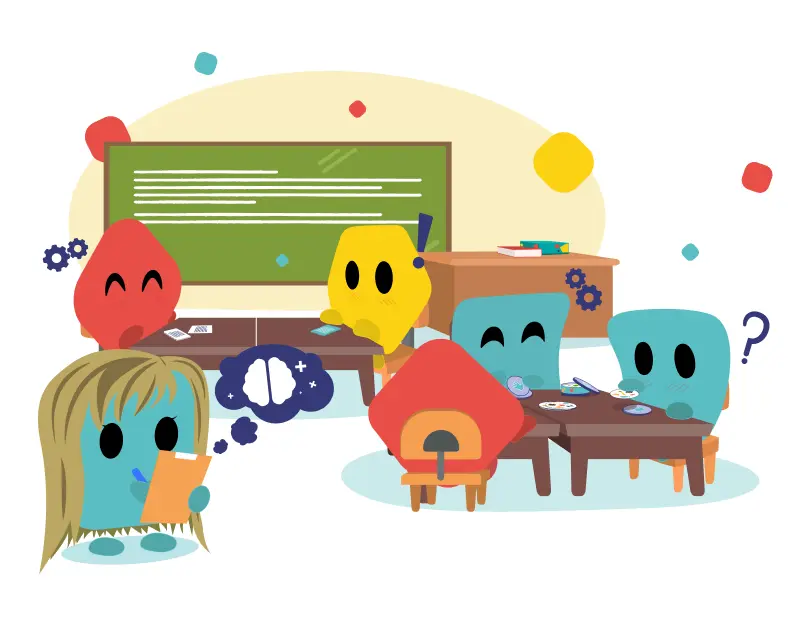- Project
- Completed
JeuMETACOGITE: Self-regulation and metacognition at school

Anick Pelletier, Céline Lanoë and Amélie Lubin Orthopedagogue, Lecturers in Psychology
Anick Pelletier is an orthopedagogue working at Optineurons Clinic in Quebec City, Canada. With 20 years of experience, and as a board game passionate, she has been using them in her work since 2002. Thanks to her expertise, she conducted an analysis of the cognitive processes present in the board games that she then uses with pupils and students.
-
Project start date :
2019/09/02 -
Status :
Completed -
Research organization :
Clinique Optineurones et Laboratoire de Psychologie Caen Normandie, EA 7452, Caen University -
Team :
Prof. Sandrine Rossi and Charlotte Montcharmont (Caen University), Prof. Patrice Potvin and Prof. Patrick Charland (University of Québec at Montréal)
The JeuMETACOGITE project was selected in 2019 in the first call for projects launched by Game in Lab as a result of a meeting between orthopedagogue practitioners and researchers in Educational Psychology. This project evaluates the effects of board games on the self-regulation of primary school students, when used according to a metacognitive approach in the classroom.
Project overview
According to the literature, children’s metacognition (perception of one’s own knowledge) and self-regulation (control of one’s own functioning) can be exercised with the help of specific training programs. However, these programs are rarely evaluated experimentally in young students. Therefore, the objective of this research project is to evaluate the effects of the innovative JeuMETACOGITE program on self-regulation and academic performance of pupils aged nine and ten years. This program uses board games to combine the discovery of brain function according to a metacognitive approach and the exercise of metacognition and self-regulation in a fun way. The teachers, trained by the research team, implement and monitor the program in the classroom.

Methodology
A longitudinal study was conducted among 300 nine- and ten-year-old fourth grade students in Québec. An experimental pre/post-test approach was used to evaluate self-regulating performance and academic performance (reading and mathematics) before and after the program. The JeuMETACOGITE program is compared to control programs (metacognitive approach without games; games without a metacognitive approach, ordinary classes).
Outcomes
The main hypothesis is that the JeuMETACOGITE program contributes to better self-regulation (near transfer) but also better academic performance (far transfer) in pupils, compared to the control programs.
As the project had to be deferred due to the pandemic, the results are expected at a later time.
